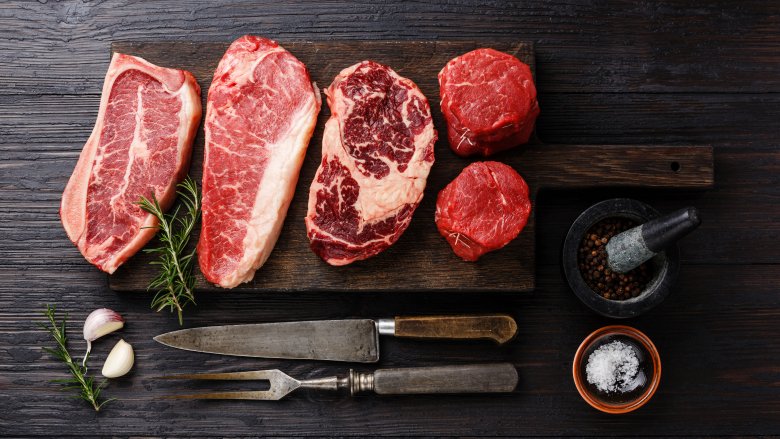What Happens When You Eat Too Much Protein
Protein is an essential part of the human diet. Different kinds of proteins help build muscle, carry out chemical reactions, and help protect us from viruses and bacteria. It's also a major component of certain diets, such as the ketogenic (or keto) diet, which is a high-fat, moderate-protein, and super low-carb diet. So while protein is really good for you, and you have to make sure you eat enough every day, what happens when you eat too much protein?
The fine folks at Harvard say that protein recommendations tend to vary, but men might want to stick to 56 grams per day, while women should look for 46 grams a day. Confusingly, though, they also note that some experts say this is far too little, while others say we should eat more.
If you eat more protein than you need, though, you could experience health issues, some of which can be serious. Because yes, there can be too much of a good thing, even when it comes to vital building blocks of the human body — like protein. Signs and symptoms of eating too much protein can include constipation or diarrhea, weight gain, high cholesterol, kidney disease, and kidney stones. Eating too much protein can also increase the risk of cancer or cardiovascular disease.
However, it's noted that these are just associations, and studies on this topic haven't proven a solid link between eating too much protein and developing these health conditions. These issues might crop up due to the type of protein someone consumes, or what other nutrients extra protein replaces in the diet. If you pack away tons of red meat and dairy products, for example, and that's where your extra protein is coming from, it could increase your risk of high cholesterol, cardiovascular disease, and colon cancer. If you eat lots of plant-based proteins, though, it probably won't be as much of an issue. In other words, the type of protein you eat could matter more than just fixating on specific amounts of protein.
Since it's hard to quantify an exact number of protein grams that could be defined as "too much protein," Harvard recommends not exceeding 2 grams of protein per kilogram of body weight per day — so if you weigh 140 pounds, you shouldn't eat more than 125 grams of protein each day. To put that into perspective, an eggs contains six grams of protein, while four ounces of chicken (about 1/2 cup) has about 22 grams, and a nine-ounce ribeye has 72 grams.
Good lean sources of protein include legumes, such as lentils and chickpeas, nuts, like almonds and peanuts, fish, eggs, and poultry.
